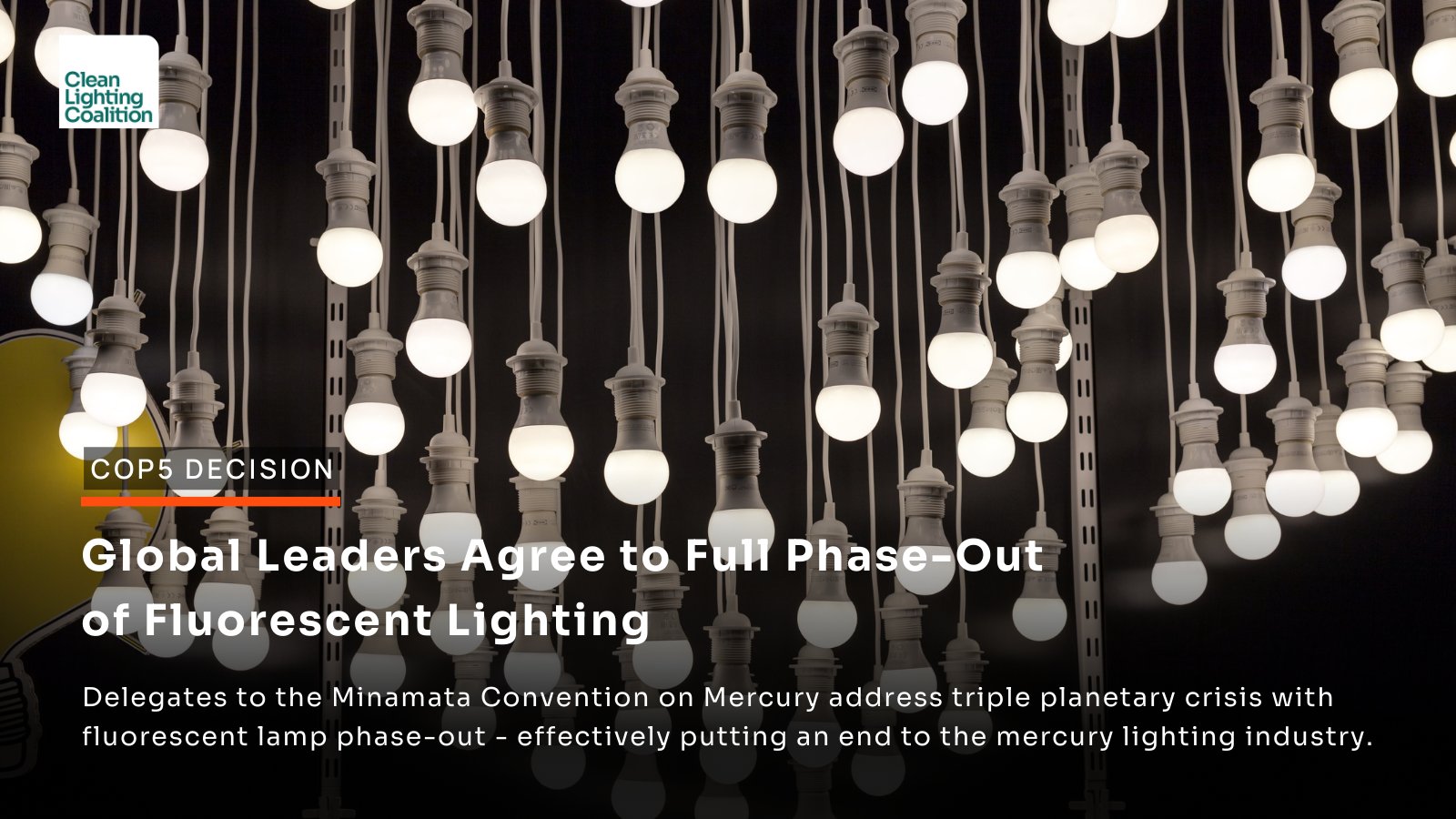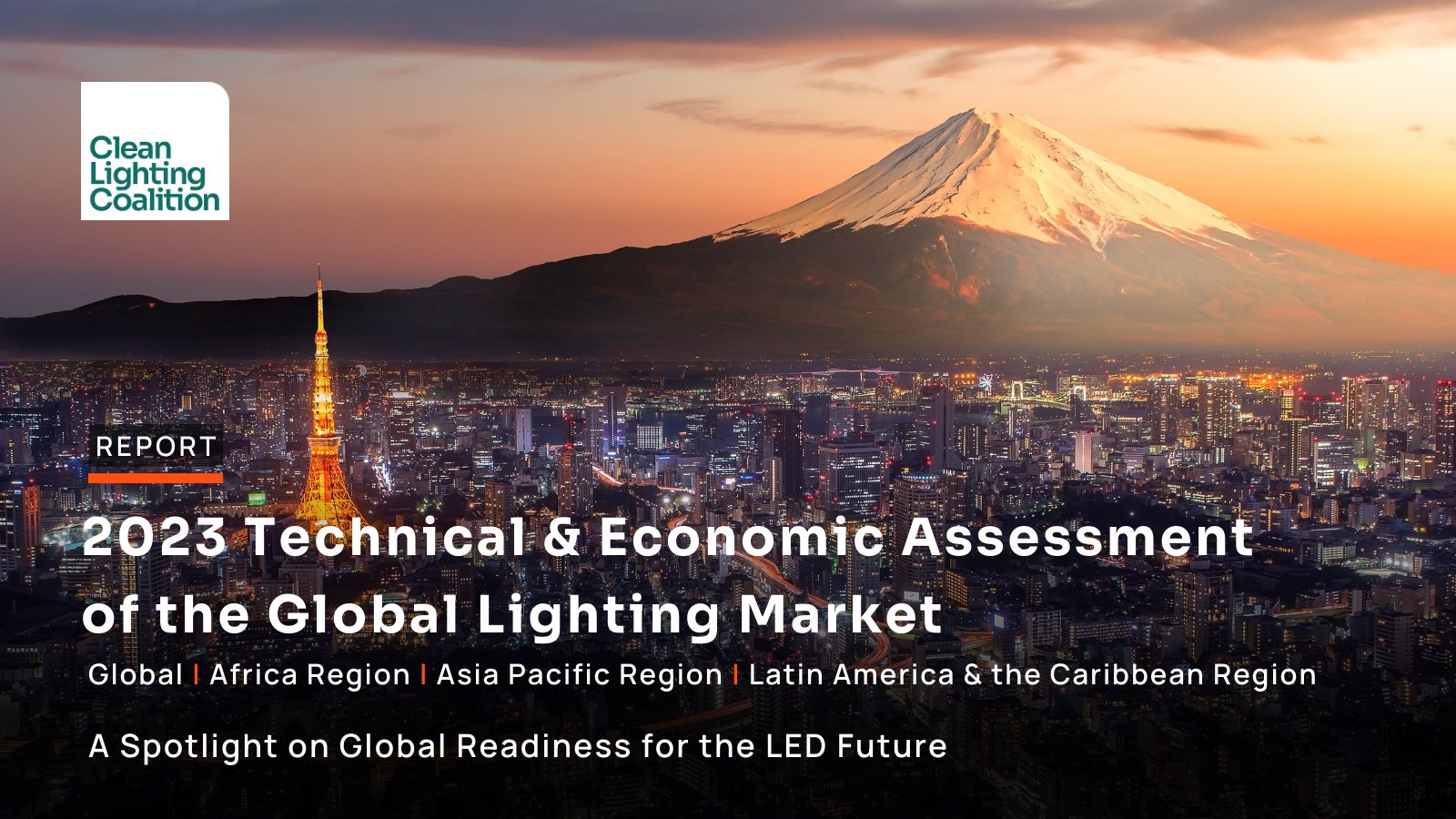The Clean Lighting Coalition (CLiC), an initiative of CLASP, facilitated a fast global transition to LEDs by driving support for African governments that were calling for a phaseout of fluorescent lighting under the Minamata Convention on Mercury.
Fluorescent lamps are an inefficient and outdated lighting product containing mercury—a dangerous neurotoxin. Most fluorescents are improperly disposed of into general waste streams, harming human and environmental health in communities around the globe.
LEDs are an efficient, mercury-free, and affordable lighting alternative that is widely available in global markets. The transition to an all-LED future offers significant emissions and mercury pollution reductions and supports local economic growth— especially in low- and middle-income countries—as the bulbs can be assembled and sold at local prices.
The Minamata Convention is a global treaty of 142 parties designed to protect human health and the environment from the adverse effects of mercury. It is named after the city of Minamata, Japan, where the population experienced widespread mercury poisoning after wastewater from a nearby chemical plant was discharged into Minamata Bay.
In pursuit of a world free of mercury lighting, the African region proposed an amendment ahead of Minamata COP5 to phase out all fluorescents, including linear fluorescent lamps (LFLs), the largest category of mercury lighting. The amendment complemented the decision at COP4 to phase out compact fluorescent lamps (CFLs), lamps commonly found in homes, by 2025.
CLiC leveraged and grew a substantial international network, including hundreds of governments, lighting experts, and civil society advocates, to stand behind leads from the African region. CLiC also provided technical and advocacy support to governments interested in accelerating their transition to LEDs—leading in part to the adoption of national and state clean lighting policies worldwide that outpace Minamata commitments.
CLiC supported governments by producing national-level market reports on the benefits and feasibility of the LED transition, providing an evidence base and clean lighting testimonials leveraged in bilateral and international meetings, and bringing attention to the cause through media outreach and events. CLiC’s resources proved to be vital in assuaging government concerns about market readiness.
In November 2023, Minamata COP5 President Claudia Dumitru’s gavel struck to the sound of roaring applause as the world officially said farewell to inefficient, mercury-containing fluorescent lamps. The benefits of the transition are massive—the full phaseout of CFLs and LFLs will avoid 2.9 gigatons of CO2 from the phase-out dates to 2050. The move will effectively put an end to the fluorescent lighting industry once and for all.


